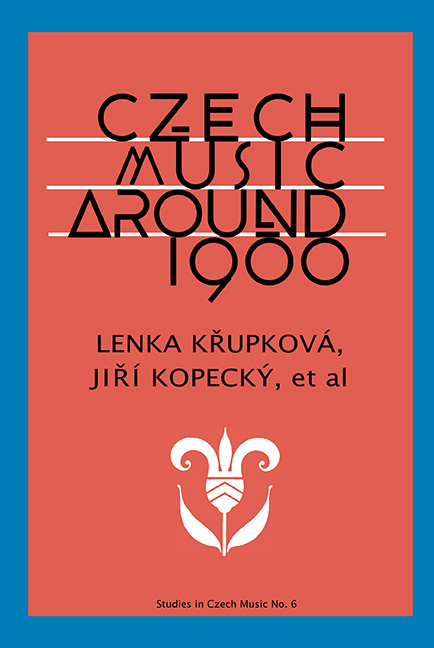Book contents
- Frontmatter
- Table of Contents
- Introductory Remarks on the Conception of This Book
- Flowers in the Graveyard, Tombstones in the Garden
- The “Other World” of Music at the Turn of the Century
- In the Footsteps of Tradition: The Spirit of Romanticism
- Czech Music at the Heart of European Music round 1900
- The Clash with Compositional Issues of European Music
- The Concept of Multi-Movement Structure within a Single Movement in the Music of Vítězslav Novák
- Heritage and New Paths in the Piano Sonatas of Vítězslav Novák and Leoš Janáček
- Josef Suk's Ripening and the Birth of the Czechoslovak Republic
- The Consequences of Conflict in the Czech Musical World: Zdenek Fibich as a Point of Contention in Novák's Polemics with Nejedlý
- Index
- List of Illustrations
- About the Authors
- List of Sources Cited
Heritage and New Paths in the Piano Sonatas of Vítězslav Novák and Leoš Janáček
from The Clash with Compositional Issues of European Music
- Frontmatter
- Table of Contents
- Introductory Remarks on the Conception of This Book
- Flowers in the Graveyard, Tombstones in the Garden
- The “Other World” of Music at the Turn of the Century
- In the Footsteps of Tradition: The Spirit of Romanticism
- Czech Music at the Heart of European Music round 1900
- The Clash with Compositional Issues of European Music
- The Concept of Multi-Movement Structure within a Single Movement in the Music of Vítězslav Novák
- Heritage and New Paths in the Piano Sonatas of Vítězslav Novák and Leoš Janáček
- Josef Suk's Ripening and the Birth of the Czechoslovak Republic
- The Consequences of Conflict in the Czech Musical World: Zdenek Fibich as a Point of Contention in Novák's Polemics with Nejedlý
- Index
- List of Illustrations
- About the Authors
- List of Sources Cited
Summary
There are many reasons why it makes sense to juxtapose Leoš Janáček and Vítězslav Novák. For one thing, they both belonged to the first generation of modern Czech musicians and (in the eyes of Zdeněk Nejedlý) stood in line with Antonín Dvořák, sharing with him an interest in Moravian folklore; for another, during the course of their compositional development they both gradually embraced the genre of musical drama, which they both considered the peak of their respective creative efforts. It is an irony of Czech music history that Novák, who was almost twenty years Janáček's younger, was in the forefront in the 1900s, and not until after his heyday had passed was this position taken by Janáček. From this time on, Janáček's operas began to gain success on international stages, whereas Novák's operas failed to arouse interest even when performed in Prague's National Theatre. Novák was now considered a conservative, while Janáček was perceived as an avant-garde composer by the generation that emerged after the Second World War.
This changing situation was also reflected in the relationship between the two composers. Novák was first introduced to Janáček by the former's schoolmate from the Prague conservatory, Rudolf Reissig, who in 1897 succeeded Janáček as choirmaster of the Brno Philharmonic Choir (Beseda brněnská). At that time, in Novák's words, Janáček was considered a “loser from Brno.” In spite of their constant clashes of opinions, Novák twice accepted Janáček's invitation to visit him in Hukvaldy. In his memoirs Novák later gives several examples to show that Janáček “was not an infallible authority in Moravian folk song.” On the other hand, Janáček was jealous of the Praguebased composer's “victorious campaign in Moravia”; indeed, especially after the famous premiere of Novák's cantata The Tempest at the Brno Philharmonic Choir, he was celebrated by the people of Brno as the first among Moravian composers. Novák criticized Janáček's “compositional primitivism,” i.e. the absence of thematic work and the fragmentariness of his instrumental music: “While other composers develop their works organically from all their elements, Janáček's music may be compared to a mountain stream, constantly breaking against the stones.”
- Type
- Chapter
- Information
- Czech Music around 1900 , pp. 255 - 264Publisher: Boydell & BrewerPrint publication year: 2017



